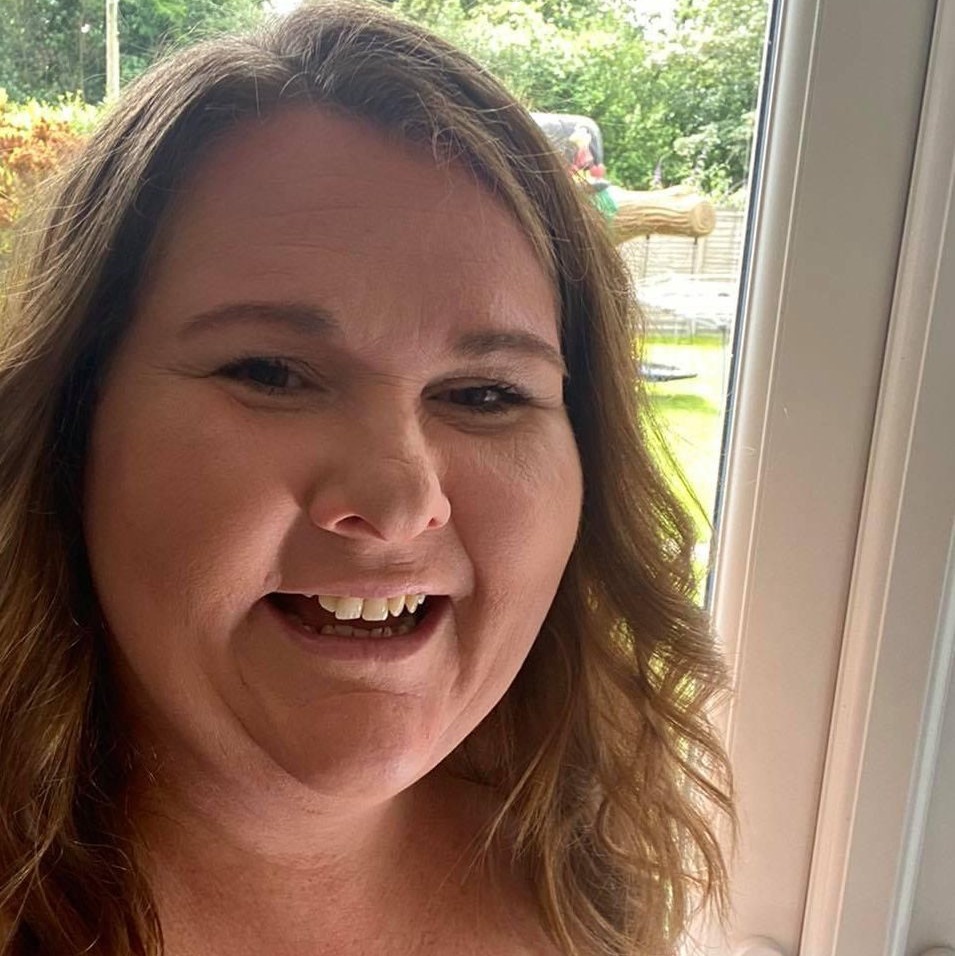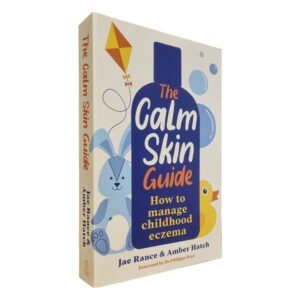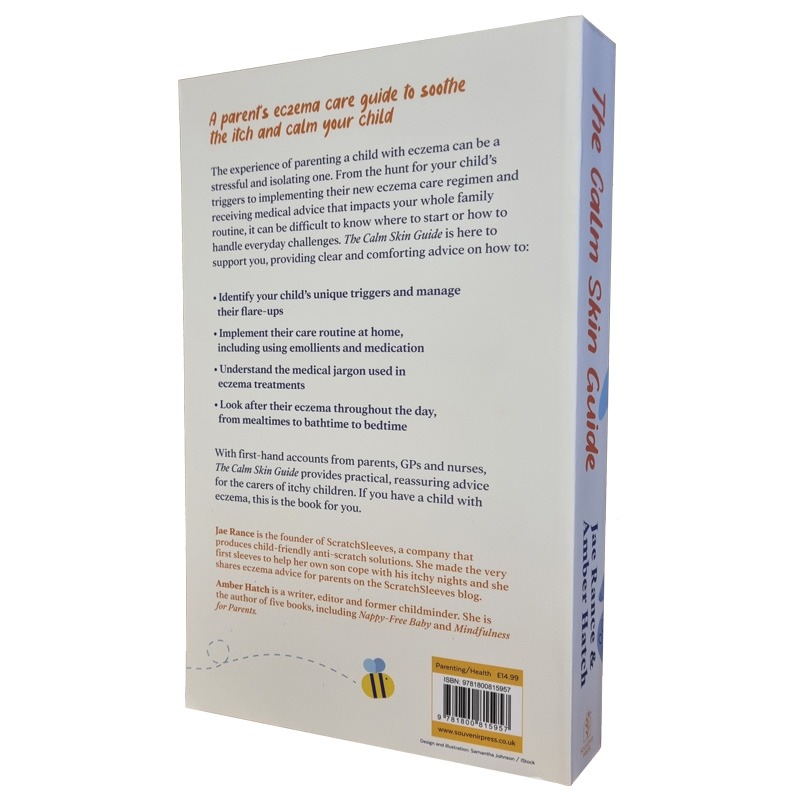Eczema and sleep: Expert sleep tips for eczema babies and children



Here at ScratchSleeves we love collaborating on blog posts to bring you the experience and expertise of professionals and parents. This time we have teamed up with early years professional, sleep consultant and eczema mum, Kirsty Irving. We can’t think of a better person to be sharing top tips on helping an eczema child to sleep.
Not only does Kirsty have eczema herself, so do her two children, Emily (7) and William (2). It was Emily’s struggles with itch-disturbed sleep that motivated Kirsty to train as a sleep consultant. Here Kirsty’s top sleep tips for helping eczema kids to sleep better.
Sleep tips for eczema kids
One of the first things to understand is that much of dealing with sleep issues happens during the day. This could be one-off tasks, like putting up black-out blinds. Other changes maybe an adaptation of your daily routine, like getting outside in the mornings. As with most things, with sleep and eczema it’s all in the preparation.
- Bedtime routine. By having a predictable bed time routine gives a child the sense of security before going to sleep and helps them to know what is coming next. You can read more here. A bath doesn’t need to be every night. I often talk about a solid and clear routine but that the calming and predictable routine can start after bath time. Bathing daily isn’t always good for eczema as baths can irritate the skin and also give a great opportunity for scratching.
- Wake windows. These are the periods that your child can comfortably stay awake. Sticking to these makes a huge difference to how children settle and go off to sleep comfortably. This minimises the unsupervised time when your little one could be scratching. Try to avoid letting your child reach overtiredness and the adrenaline of their ‘second wind’. You can read more about wake windows here.
- Darkness. Think of darkness as a scale of 1 to 10 where 1 is daylight and 10 is pitch black. Keeping your child’s bedroom at about 8 out of 10 for darkness will support them to be able to settle. This can be tricky in the summer when bedrooms can get really hot. If you need to leave the door open for ventilation, you may need to darken your hallway as well. You can read more on top tips for sleeping on hot summer nights here.
- Temperature of bedrooms. Ideally bedrooms need to be around 20 degrees. Keeping eczema children a little cooler will often avoid itching, especially if they are having to wear layers that protect their skin. If you notice a regular 4am wake up, this could be down to the drop in body temperature. Adding an extra layer as you go to bed yourself should solve this. Make sure the light stays as dim as possible and try not to interact if your little one isn’t quite asleep.
- Implement all itch reducing strategies before bed This means that you know you have done all that you can to help and keep clear boundaries post “good night” time. These strategies will vary depending on the child but are likely to include some of the following: creams – don’t hesitate to ask your GP for more effective creams if the ones you have don’t seem to be making a difference; hand coverings – ScratchSleeves are essential in our house, put them on calmly and interactively before bedtime maybe using silly noises, maybe pretend your little ones arms are snakes sliding into their bed, or that they are putting on princess gloves or Octonaut paws (you can use fabric pens to draw paws on the mittens) to help little ones accept them; antihistamine to help reduce the itch from inside; fidget toys to keep hands busy – Emily had a low stimulating fidget bag that lived by her bed in case she needed it.
- Watch what foods are being eaten, especially in the late afternoon and evening. Are certain foods associated with difficult nights? If so, that food may be a trigger for itching even if it doesn’t cause a full on flare up. It goes without saying that food or drink high in sugar and artificial colourings should be avoided before bedtime.
- Screen time. It’s important to avoid screens 1-2 hours before bed time as the blue light given off all screens can suppress the sleep hormone melatonin. The bright, simulating images of TV programmes, games and other content will also keep your child awake rather than starting the wind-down to bedtime. While all screens produce blue light the further you sit from a screen, the more diluted the blue light. So if avoiding screen time before bed is likely to end up with an itchy meltdown, rather than letting your little one loose on a tablet, try watching TV together and choose a gentle, slow paced programme like Sarah and Duck.
- Meeting needs. When your child is struggling to sleep or waking in the night it is important to meet their needs but you need to be careful. Are the needs genuine? Will your actions create a longer term problem? Children will always push at boundaries and it is our job as parents to identify the genuine need as opposed to delaying tactics or attention seeking. For example: Is my seven-year-old complaining of a tummy ache because it’s bedtime or is she really ill? She was quite happy to eat her dinner and run around with her friends for half an hour, so I think we can be reasonably sure that that’s a delaying tactic. Eczema can make this much, much more challenging. Is the itch genuinely keeping your little one awake or would they like the attention they get when you go to them? You can read more about how my then 4 year old’s itching morphed from a genuine need for itch relief into a pattern of regular rousing – and how we eventually got her to sleep better here.
- Be aware of major life transitions. Sleep problems are often caused by big life transitions such as moving house, changing school or the arrival of a new baby. The same is true of eczema flare-ups. Stress is a well documented eczema trigger, even in children. Don’t be tempted to think that you have protected your child from these changes, or that it’s not bothering them. Kids pick up on so much more than we as parents give them credit for. During the day, talk to your child about any changes that are going on in their lives. This gives them a chance to get any worries out into the open and gives you a chance to reassure them long before bedtime.
- Mindfulness and deep breathing. Co-regulating with young children can really support them to learn how to self-regulate as they grow. At moments of upset, exaggerated deep breathing shows them how to get through challenging times. Practising breathing in a fun way before bed can really relax children. Emily and I like whale breathing, rainbow breathing, rabbit breathing. Examples of this can be found online (we have created a TikTok video about this). These techniques also help to focus your child’s mind on something other than their itchy eczema. You can find more on these techniques here.
- Calm environment before bed. This can be challenging when children become overtired and hyperactive. The parent modelling calm will support them to become calm. Whispering is a wonderful way of being able to bring the environment to a calm volume and atmosphere.
- Fidget toys. These movements create an outlet, which can help calm a child’s nerves, relieve possible stress and they also serve as a distraction to itching.
- Clothing. I talked about room temperature above. It’s also important to ensure the clothing is not irritating, especially to children with sensitive skin. We love the ScratchSleeves PJ ranges.
- Exercise and sunshine. It is really important to also make sure that children have a minimum of three hours of physical movement a day. That doesn’t necessarily mean three hours of running around, swimming or tummy-time. Fine motor skills are also physical – so drawing, building Lego and, for babies, batting at hanging toys will all contribute. That said, in order to make sure that circadian rhythms are in the best pattern for night-time sleep, it is more effective for children to get outside to exercise in the fresh air in the first part of the day. If you are really struggling and can’t face the thought of any sort of physical exertion or dealing with the inevitable questions about your child’s skin from well meaning strangers, try to get outside with your little one for just 10 minutes in the morning. It can make a whole world of difference.
- Other sleep issues. It’s worth keeping in mind that sleep issues can exist alongside eczema. Common sleep issues can coincide with the onset of eczema, especial in babies. For example, sleep issues related to sleeping environment commonly occur at around 4 months old. This is the same age that eczema typically appears for the first time. You can read more about common sleep issues here.
If you want more details of Kirsty’s work as a sleep consultant head over to her website where you’ll find contact details, links to social media channels and more great sleep tips for eczema kids and information about helping children to develop good sleep habits.
As well as sharing our experience of bringing up an eczema child (and favourite allergy-friendly recipes), we also manufacture and sell our unique stay-on scratch mitts and PJs for itchy babies, toddlers and children. We now stock sizes from 0-adult years in a range of colours and designs. Visit our webshop for more information.
The Calm Skin Guide
Love our blog? It's also available in book format with:
- First hand accounts from parents & medical professionals
- Easy navigation
- Comprehensive index
- Additional material
Signed copies available at no extra cost

Written by:
Reviewed by:
Interesting article? Don't keep it to yourself...
Read next...
You may also find helpful...
Quick buy


Multi Buy Discount

Spend between £30 - £60 and save 5%
Spend between £60 - £120 and save 10%
Spend over £120 and save 15%
Discount automatically applied at checkout
No Quibbles Guarantee

ScratchSleeves abide by a no quibbles guarantee.
Free UK Postage

Free packing and postage on all UK orders. For overseas orders to Europe postage is from £3.50, to USA is £6.50 and to the rest of the world, from £3.75.






